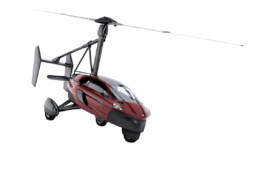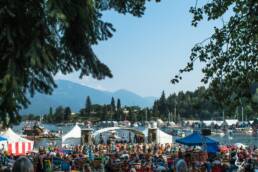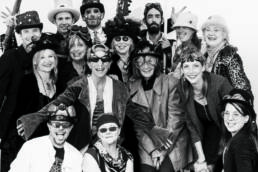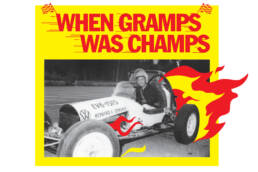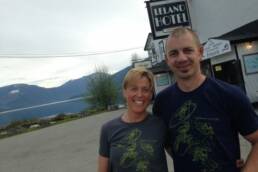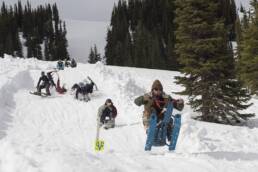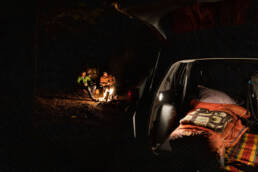Got the nerve to fly a mini-car 180 clicks an hour? If so, make the trip to the historic town of Kaslo, British Columbia. By Louis Bockner
The village of Kaslo, British Columbia, is picturesque, antiquated, and quiet. It is home to 968 residents, two flashing red traffic lights, and one beached sternwheeler: the SS Moyie. It is also home to Mark Jennings-Bates—a man whose futuristic job title contradicts the historic facades lining the village’s main drag. Jennings-Bates is a flying-car salesman.
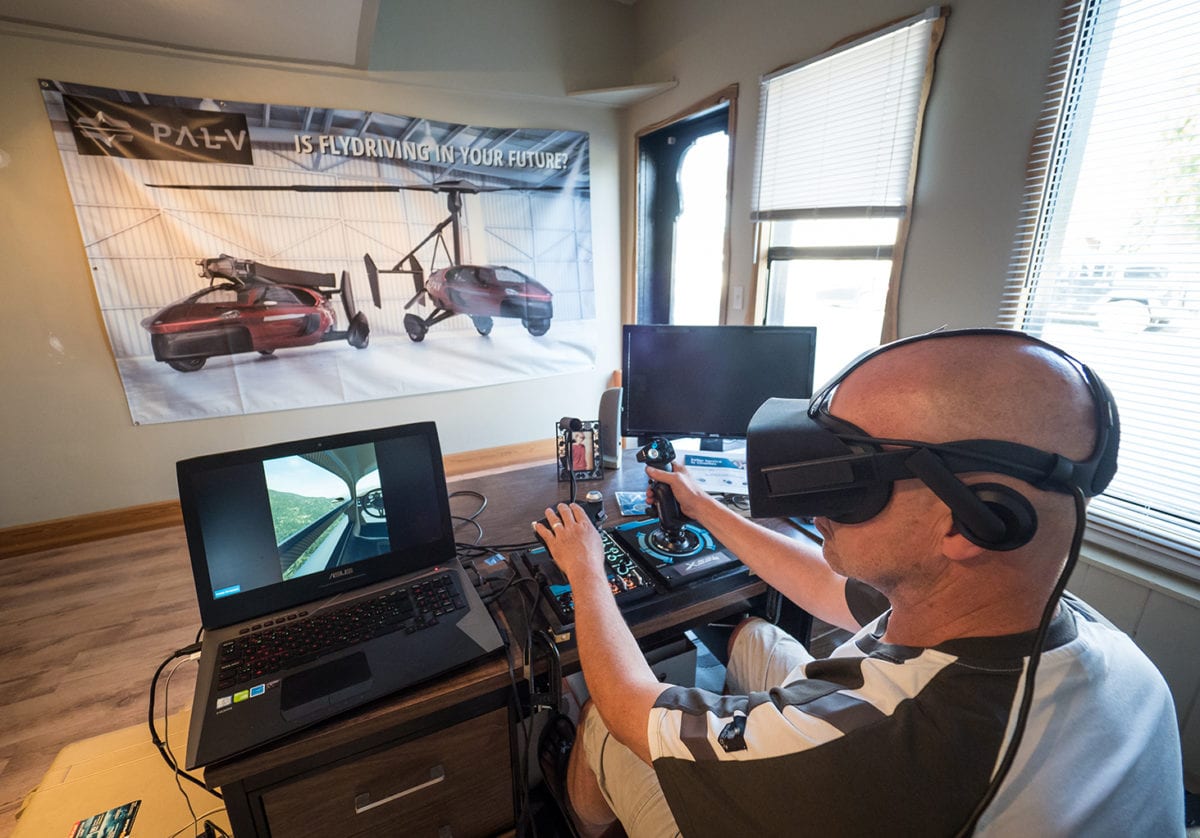
Yes, the transportation of Blade Runner is upon us, and Jennings-Bates, a UK native with a passion for cutting-edge adventure, will happily sell it to you. He is the North American vice president of sales for PAL-V, a Netherlands-based company that is leading the flying-car industry. All you need to buckle into a limited-edition Ferrari-style PAL-V Liberty is a taste for novelty, a bit of patience, and a spare US$599,000. “Our go-to target market is affluent, adventurous people who want to be first,” he says. “Beyond that there are more practical uses, like people getting to remote places.”
All you need to buckle into a limited-edition Ferrari-style PAL-V Liberty is a taste for novelty, a bit of patience, and a spare US$599,000.
The Liberty is a two-seat, three-wheeled pod with a helicopter-style rotor, tail propeller, and rudder. It can switch between drive and flight modes in roughly five minutes, takes unleaded automotive gasoline, and can reach speeds of 161 kilometres (100 miles) an hour on land and 180 kilometres (112 miles) an hour in the air. Despite the rotor, it needs a runway to take off or land and is technically a gyrocopter, meaning owners can be certified following a two-week boot camp that is included with their purchase.
Currently the vehicle is undergoing trial flights in Europe, with the European Aviation Safety Agency anticipated to approve it for consumer use later this year. It’s expected the Federal Aviation Administration and Transport Canada Civil Aviation will follow suit sometime in 2019.
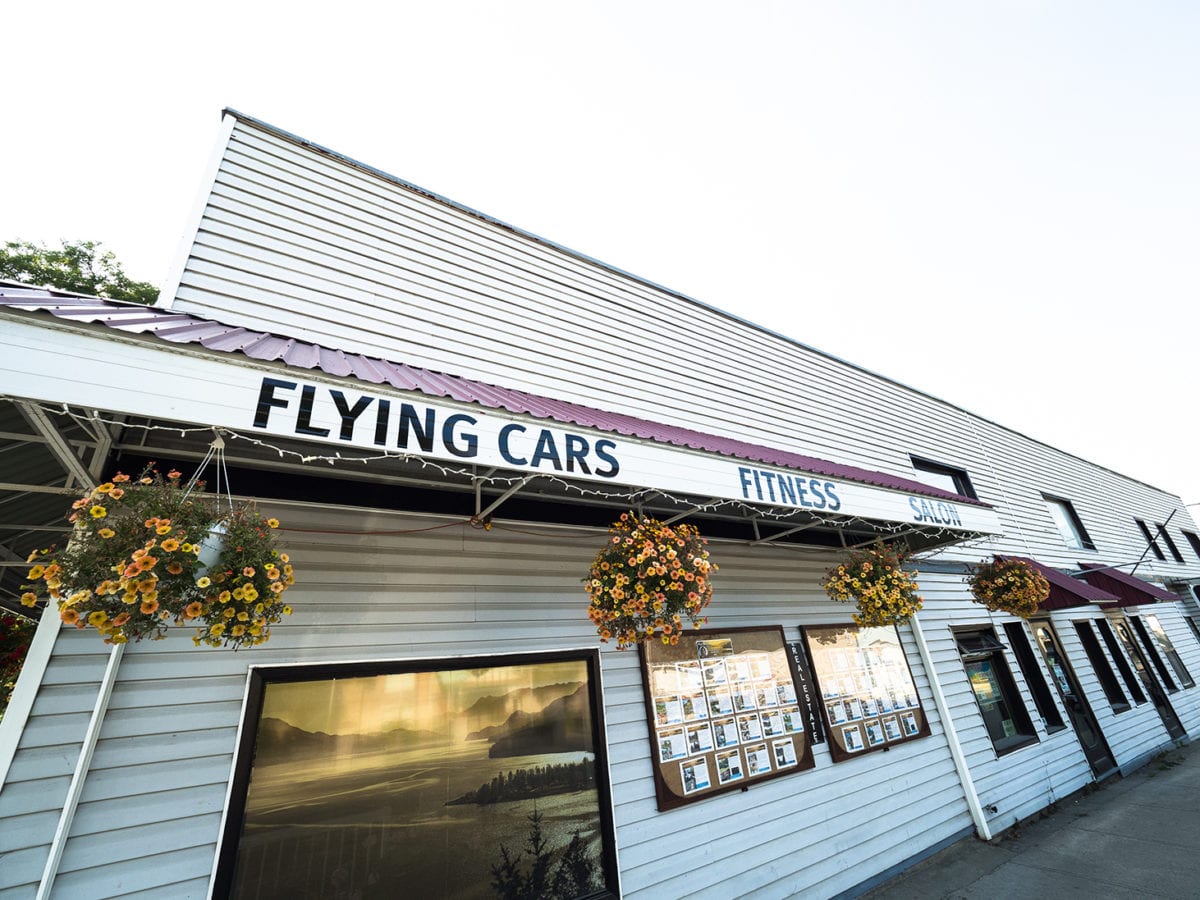
The current lack of approval hasn’t stopped Jennings-Bates from selling three-quarters of the 25 Liberties slated for North American consumers, including one to a Vancouver businesswoman earlier this year. And while it is unlikely any Kaslo locals will purchase one, the occasional intrigued resident visits Jennings-Bates for a virtual-reality simulation flight that allows them to soar high above Kootenay Lake from the comfort of his small downtown office.
When asked why he and his wife, Jackie, decided to move to Kaslo in 2017, Jennings-Bates praises the village’s quiet and its beauty. “We just wanted to live here and the flying car came with me.” That particular piece of baggage has made him a community curiosity. “I’m the biggest mystery in town,” he says, laughing. “My wife just says I’m a car salesman.”
Related Stories
Paradise Found at the Kaslo Jazz Fest
Imagine a smooth Mediterranean-like breeze, looking out past the rows of sailboat masts and small pleasure craft. An…
Kaslo’s Steam Punk Revolution
Wedged somewhere between Charles Dickens and Dr. Who, these freaky fashionistas are gaining steam around the world. By…
Following In The Tread Marks Of My Race Car Champ Grandpa
Coast Mountain Culture writer Vince Hempsall burns rubber at one of the Pacific Northwest's oldest and toughest…
GT Or Die
Twist your throttle. Mod your ride. Best cowboy-up or step aside. Golden's rowdiest snow showdown turns ten. Writer…
This Is Why Hotels Are Going To Hate The Backseat Bivy
The Kootenay-based company Backseat Bivy launches this month and it's set to change the way you sleep in your car…


